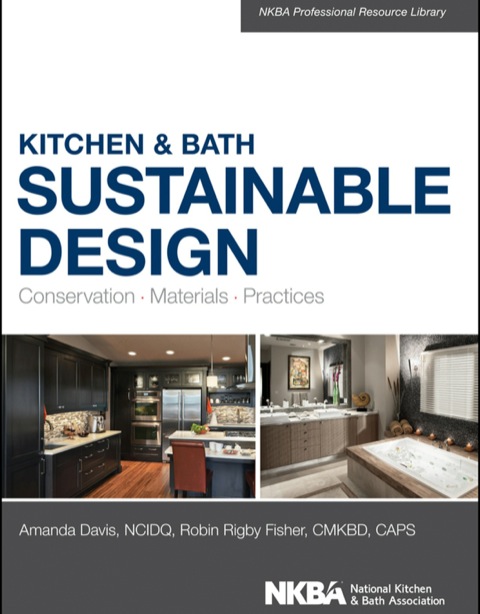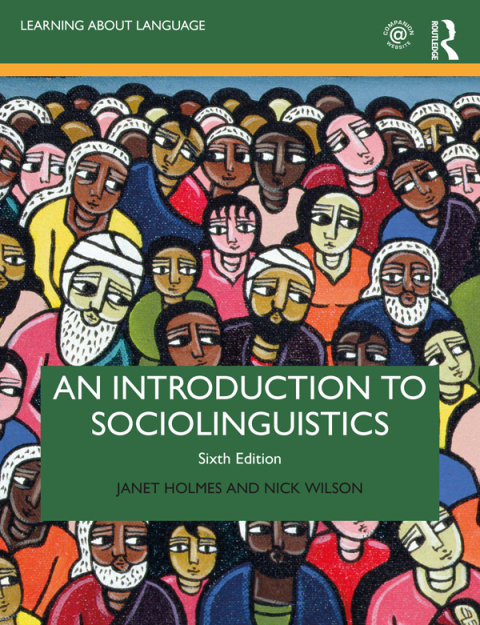Description
Efnisyfirlit
- Kitchen & Bath Sustainable Design
- Sponsors
- About the National Kitchen & Bath Association
- Contents
- Preface
- Professionals as Students
- Acknowledgments
- 1 Understanding the Need for Sustainable Design
- Triple‐Bottom‐Line Approach
- Event‐Oriented Thinking, Systems Thinking, and the Butterfly Effect
- The Myth of Apathy
- Designing for Benefit
- Concepts to Consider
- Goals
- Best Practices
- Summary
- Review Questions
- Endnotes
- 2 What Defines Sustainability?
- Embodied Energy
- Carbon Footprint
- Environmental Health
- Renewable Resources
- Renewable Energy
- Affordable Comfort Perspective
- Green Alliances and Programs
- Bottom Line: How Remodeling Sustainably Can Save Your Client Money
- Summary
- Review Questions
- Endnotes
- 3 Sustainable Construction
- Home Energy Rating System
- The Path You Take—Beyond Code
- Clean Site Management
- Siting Your Project
- Window Specification
- Walls and Insulation
- Green Wall Construction
- Heating and Cooling
- Heat Recovery Ventilators
- Energy Recovery Ventilators
- Water Conservation and Distribution
- Point‐of‐Use Water Heaters
- Deconstruction
- Donation of Salvaged Materials
- Lead
- Lighting Choices and Design
- Space Planning
- Recycling Center
- Summary
- Review Questions
- Endnotes
- 4 Indoor Air Quality
- Indoor Air Quality—Why Should We Care?
- Causes of Poor IAQ
- Kitchen Ventilation
- Bathroom Ventilation
- Ventilation for Laundry Rooms
- Noise Created by Ventilation
- Makeup Air
- Naturally Occurring Phenomena
- Mechanical Systems Operations
- Makeup Air Options
- Summary
- Review Questions
- Endnotes
- 5 Materials, Appliances, and Fixtures
- Getting Started
- Material Properties
- Green Product Declarations
- Embodied Energy
- Life Cycle Assessment
- Strengths to Using LCA Evaluation
- Systems Thinking
- Green Product Directories
- Longevity and Universal Design
- Materials
- Cement
- Concrete
- Epoxy Grout
- Wall Finishes
- Wallboard (Sheetrock)
- Moisture‐Resistant Wallboards and Tile Backerboards
- Paint
- Clay Plasters
- Ceramics
- Countertops
- Sealers
- Types of Sealers
- Flooring
- Cabinetry
- Appliances
- Fixtures and Fittings
- Sinks
- Faucets
- Composting and Garbage Disposals
- Water Filters
- Water Heating and Distribution
- Point‐of‐Use Tankless Hot Water Heaters
- Bathrooms: Showers, Baths, and Steam
- Living Room Appliances
- Summary
- Review Questions
- Endnotes
- 6 Creating an Environmentally Sustainable Design Practice
- Why Create an Environmentally Sustainable Design Practice?
- The Four Ps for Creating a Sustainable Business
- Today’s Green Client
- Understanding Your Client
- Incorporating Systems Thinking in Your Business
- Summary
- Review Questions
- Endnotes
- Appendix A Composting versus Garbage Disposals
- Embodied Energy
- Endnotes
- Appendix B Water Bottles versus Water Filters
- Endnotes
- Appendix C Case Studies
- Case Study 1: Morgan Residence, Portland, Oregon
- Designer: Robin Rigby Fisher, CMKBD/CAPS
- Case Study 2: Maccabbee Residence, Portland, Oregon
- Designer: Robin Rigby Fisher, CMKBD/CAPS
- Case Study 3: Repurposing Materials, Portland, Oregon
- Designer: Anna De Wolf, Arciform Design Build, LLC, Portland, Oregon
- Case Study 4: Bathroom Renovation, Montclair, New Jersey
- Designer: Tracey Stephens, CID, ReGreen Certified, Principalat Tracey Stephens Interior Design
- Case Study 4: Kitchen Renovation, Montclair, New Jersey
- Designer: Tracey Stephens, CID, ReGreen Certified, Principalat Tracey Stephens Interior Design
- Appendix D Summary of Product Standards for Green Specifications
- Sustainability Criteria
- Appendix E Determining Your Client’s Commitment to Green Design
- Designing for Green Living
- Construction
- Materials
- Water Conservation
- Energy Conservation: Energy Use
- Energy Conservation: Heating and Cooling
- Energy Conservation: Preventing Energy Loss
- Indoor Air Quality
- Designing for Longevity
- Glossary
- Resources
- Index
- Advert
- EULA






